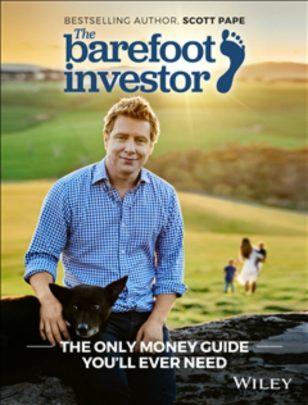Why you don’t need $1 million to retire

I’m going to lay out for you what I call the ‘Donald Bradman Retirement Strategy’. It’s called this because it’s built on the expectation that you’ll still be confidently at the crease when you’re 100—not out! Strap your pads on. Grab your bat. It’s time to take a swing at the biggest fear people have.
‘You need $1 million in retirement,’ say most financial planners. ‘$2 million might not even be enough,’ wrote a financial planner in the newspaper recently. If you’re in your 50s these retirement figures will likely scare the bejeezus out of you. After all, the average Aussie couple retires with $200,000 in super. Let me be clear: you do not need a million dollars in super to retire. A million dollars is way above what you actually need. At a minimum, you need a paid-off home, plus:
Couples: $250,000 in super
Singles: $170,000 in super.
Make this your ‘retirement number’. To be clear, this is the number you need to nail before you even think about retiring—and that’s in addition to owning your own home outright. So how much dough does a comfortable retirement cost? According to the Association of Superannuation Funds of Australia (ASFA):
$59,000 a year for couples and $43,000 a year for singles. At this point you’re thinking, ‘Does this plan of yours involve me holding up convenience stores with cricket bats? Because I can’t see how my $250,000 will afford me a $59,000 per year lifestyle’. Let’s head to the crease.
Rule 1: You must have the banker off your back
This strategy only works if you retire debt free… as in no mortgage. Even better, the Age Pension doesn’t take into account the value of your family home. (Which means that, theoretically, James Packer could cash in his chips when he’s older, buy a $7 billion home and collect the Age Pension.) You need to own your own home—debt free—before you retire.
Rule 2: Nail your number
You can’t retire until you’ve nailed your retirement number as a minimum (more money is better): $250,000 in super for couples and $170,000 for singles. Hang on, what’s so special about these numbers?
This is the maximum dollar amount of assets (excluding your family home) that you can have and still get close to the maximum rate of Age Pension. At the time of writing, the maximum rate of Age Pension is $34,252.40 per year for couples and $22,721.40 for singles. And it will get you 60 per cent of the way towards your comfortable retirement number on its own.Think of this as your safety net: it’s guaranteed by the government, it’s indexed twice a year to keep up with inflation and it will be paid until the day you die.
Rule 3: Never, ever retire
It’s said that the two most dangerous years of your life are the year you’re born and the year you retire.
Well, it looks like you made it through the first one, so let’s talk about the second. The golden rule of retirement is…keep working. That doesn’t mean you have to keep your existing job (especially if you’re a tiler with dodgy knees). You can do something less labour intensive—just a day or so a week, and it doesn’t need to be every week. Work is good for you: retirees who continue doing some kind of part-time work are found to be the happiest and the least likely to suffer depression.Why not use the skills you’ve honed over your career to do some useful work? I meet so many Uber drivers who are well-to-do retirees who don’t need the money—they just like chatting to people and earning their keep at the same time.
And better yet, if you do work, the government will bend over backwards to help you.
Once you reach pension age, you’ll not only be able to draw a tax- free pension from your super, but in addition a couple can earn up to $28,974 each without paying a cent of income tax (singles can earn $32,279 per year). Yet what if your advisor says, ‘You’re a winner, you don’t have to work another day in your life’.Barefoot says, ‘Work anyway, even if it’s a day a week’. The biggest mistake you’ll make with your retirement is to give up working. Let’s take a final look at the retirement scoreboard, after you’ve applied all three rules:
- You’ve paid off your home.
- You’re getting the Age Pension of $34,252.40 (per couple) a year, indexed for life. And you’ve got $250,000 in super. (This will pay you a tax-free income of $12,500 a year.)
- You and your partner each work just one day a week to bring in a combined $20,000 a year, completely tax free.
Total: $66,752. That’s almost $8,000 more than you need for your comfortable retirement! Ker-ching!
Edited extract from Scott Pape’s new book, The Barefoot Investor: The only money guide you’ll ever need (Wiley $29.95), now available at all good bookstores and online at www.wiley.com.









 Proudly Australian owned and operated
Proudly Australian owned and operated